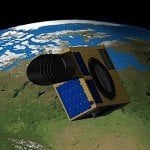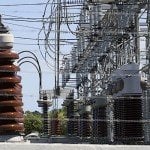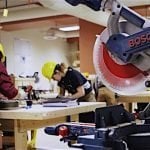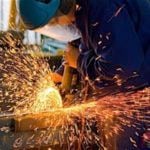A California company believes it has found a low-tech, low-cost solution to a persistent problem: how to guarantee electric grid security and reliability through renewable energy with an energy storage system that does not depend on water. Advanced Rail Energy Storage (ARES) says it is the first viable grid-scale alternative to pumped hydro energy storage. ARES is less expensive, more efficient, and more widely deployable than hydro-based storage technology.
How does ARES work? It uses gravity and friction to “mimic the benefits of hydro-electric power without the water.” A rail-based technology that stores energy “by raising the elevation of mass against the force of gravity and recovering the stored energy as the mass is returned to its original location.”
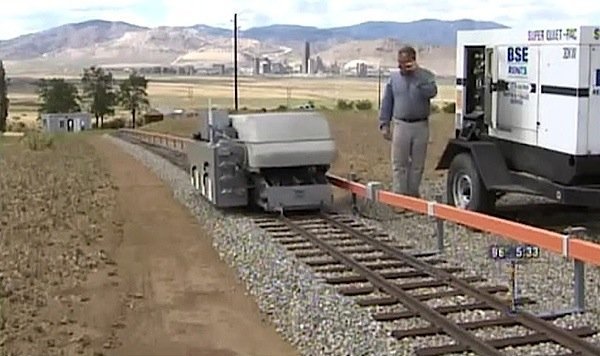
Put another way, rail cars, or “electric traction drive shuttle-trains” filled with earth and rocks are shunted to storage yards at different elevations. There they sit until their stored energy is needed, at which time they are allowed to roll back down the tracks, generating electricity through their turning wheels and a regenerative braking system as they descend. Each of the rail cars is equipped with a 2-megawatt generator which functions both as an induction motor to power the cars and as a generator when operated in reverse. The power generated on the descent is transmitted back to the power grid. The system has a storage efficiency of about 85 per cent, according to the company, making it one of the most efficient energy storage systems in the world.
The global market for energy storage is growing rapidly as the need to integrate diverse generation assets intensifies. Solar and wind energy generation are fundamentally intermittent and their aggregate peak output is rarely coincident with peak system loads, delivering on annual average less than 30% of their rated capacity into the electrical grid; which must nevertheless be maintained to absorb the full rated capacity of installed systems. This is an inefficient use of valuable transmission assets.
ARES
The company says that its systems are scalable in power and energy with a range from 100MW with 200MWh of storage capacity, all the way up to 2–3GW of energy with 16–24GWh of energy storage capacity. A 1GW ARES energy storage facility can provide 8GWh of energy storage, which is enough to power 1 million homes for eight hours, the company says. The system uses no water and releases no noxious emissions.
The CEO of ARES, Jim Kelly, says that their system solves the problem of intermittence that is a key drawback to renewable energy technologies. The process allows for the storing of the energy generated by solar and wind energy, without the need for hydro power and at a lower cost than a pumped hydro project would require. This makes it ideal for use in arid areas like parts of California and Nevada. which is where the company is launching. A pilot project using an 800-foot track is in operation now. A commercial-scale project is to be built with the Valley Electric Association.


